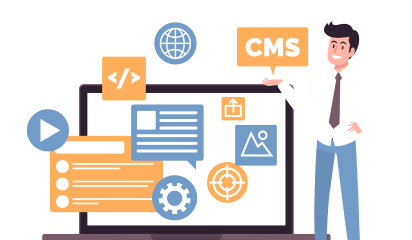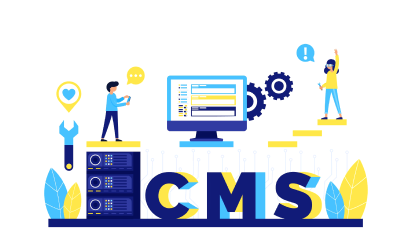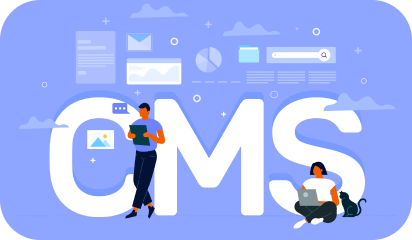With over 50,000 plugins in a single CMS plugin directory, it can be difficult for business owners like you to find the right plugins from your favorite CMS platform. Plugins greatly enhance your website and there are several thousand plugins available on your chosen CMS platform and third-party websites.
Choosing the right plugins is critical for your website’s speed, security, and usability. Fortunately, some clear winners will benefit almost any type of CMS site.
In this blog, we’ve compiled a list of the best plugins for popular CMS. We’ll go over plugins designed to improve WordPress, Shopify, Craft CMS, and Joomla.
WordPress
Simple Responsive WP Slider
Simple Responsive WP Slider is a lightweight WordPress slider plugin. You can use the plugin to create and customize an unlimited number of sliders for your website. To add the slider to a webpage, you can use a shortcode or place it within Gutenberg blocks. The plugin’s features include unlimited sliders and multiple sliders on each page. Custom configuration options are available for each slide, including the navigation and slider. Adding dots or arrows to the slides is one of the basic configuration options for individual sliders.
Quick Audio Player
Quick Audio Player is a customizable WordPress audio player. The plugin is mobile-friendly and compatible with any WordPress theme. It works flawlessly on all devices and web browsers. The plugin includes an HTML5 audio player, live player editing, a player poster image, rich control settings, a player shortcode, player width and color customization, and a player color picker. The player supports a variety of audio formats, including.mp3,.wav, and.ogg.
Tutor LMS Elementor Add-ons
Tutor LMS Elementor Add-ons is a useful plugin that adds 25+ Elementor page builder add-ons. Users can use the plugin to create custom styling and layouts for Tutor LMS courses. You must install both Tutor LMS and the Elementor Plugin for this plugin to function properly. After you’ve activated all three plugins, you’ll be able to use Elementor to create single course pages. Course rating, course title, course author, course level, course duration, course thumbnail, course price, and many more are among the Elementor Add-ons. The plugin can also be used to change the appearance of your existing courses.
Job App Manager
Job App Manager is a simple WordPress plugin that allows you to display a job application form on your website for candidates to fill out and submit their information. To display the form on any webpage on your site, a shortcode is used. After completing a form, the user will receive a confirmation email. Go to the admin page and navigate to ‘All Submissions’ to find the submissions in the form. You can also search, filter, and delete forms from the admin page. There is also a dashboard widget that displays the most recent five form submissions.
Wall Pricing table
WordPress users can use the Wall Pricing Table plugin to create pricing tables for their websites. You can include the features of the various pricing plans as well as display the price table anywhere on your website. The pricing table includes the following fields: title, subtitle, price, button, and features (you can add as many as you want). Each plan can be distinguished by color. The plugin is available for free.
…
Craft CMS
Marketplace for Craft Commerce
Craft users can use Marketplace for Craft Commerce to turn their Ecommerce sites into a marketplace. Users can charge fees for your platform as well as add payees to products. You have the option of charging a flat or percentage fee. Stripe Connect is used to process payments.
Presence
Presence is a Craft plugin that shows who is currently editing an entry. While editing any entry, the users are displayed in the right sidebar settings. For users who do not have a profile image, a default logo is set. Admins can review and approve the entries made.
…
Joomla
AA Tiny Audio Player
AA Tiny Audio Player is a Joomla extension that adds an HTML5 audio player to your website. The extension includes a responsive layout and animation support. It supports the video formats.mp3,.ogg, and.wav. It is also compatible with all templates.
MyRealPin
MyRealPin gives your website a Pinterest-like appearance. You can make your pinboards, and collaborate with your friends on them. You can modify the Joomla extension to meet your specific requirements.
AA Youtube Subscription Button
AA Youtube Subscribe Button is a Joomla module that displays a YouTube subscribe button along with the subscriber number of your site. It is simple to use and fully responsive. It is cross-browser compatible and can be used with any template.
…
Shopify
Advoz
Advoz is a Shopify plugin that allows professionals to create high-quality Google, Facebook, and Instagram ads to promote your company. Once you’ve decided on a weekly budget, you’ll receive a custom graphic or video detailing how the ads will appear. The plugin will generate advertisements that will drive high-quality leads to your store.
Products Stories Convert Sale
Products Stories Convert Sale is a cool plugin that transforms your website into a trendy social network. Customers can view products in your store in a fun and easy way thanks to the plugin. Like Instagram feed stories, all of your catalogue will appear in carousel stories. Coupons will also appear in the stories to aid in sales. You will also receive real-time reports to assist you in determining what your customers are interested in.
ConvertOut Ambassadors
ConvertOut Ambassadors is a Shopify plugin that allows users to quickly set up an ambassador program. To get started, you don’t need any technical knowledge. The plugin begins working immediately after installation. ConvertOut will track the commission that must be paid to the ambassador for each sale. Payments are made to the ambassador’s PayPal account.
Wrapping Up
It is nearly impossible to run a CMS website without using plugins to add functionality. There is a plugin for almost anything you can think of on your website, whether you want to engage users through email opt-in forms, add social sharing buttons, compress images to improve website speed or optimize your content to rank in search engines.
Furthermore, plugins greatly improve and optimize the user experience, resulting in higher engagement and a better chance of reaching a larger audience.
If you’re not sure which plugins to install first, these well-known and trusted plugins will get you started.
About Galaxy Weblinks
We are your offshore CMS development partner and have state-of-art infrastructure and development expertise on the latest CMS technology trends. We have hands-on experience in customizing websites using multiple platforms, be it Shopify, Craft, WordPress, Joomla, catering to different business needs. We offer assistance from building custom CMS websites to website migration and maintenance processes.



